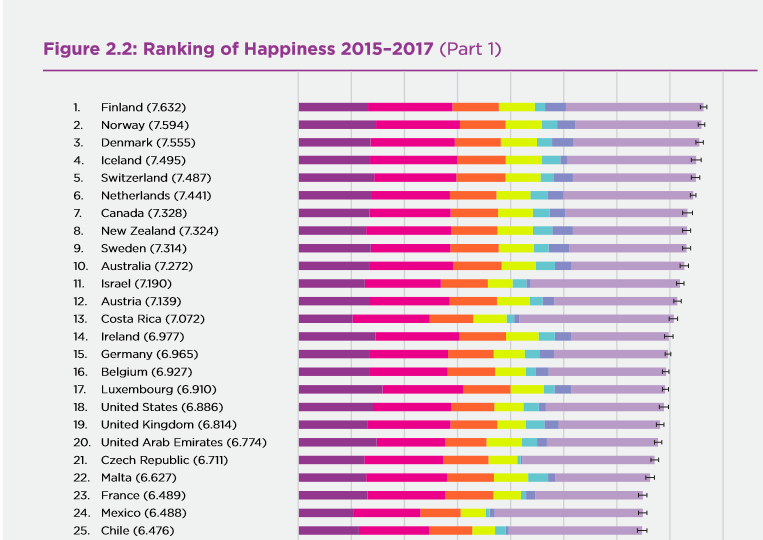
The Importance of Workplace Wellness
You’ve no doubt heard of the story from last June where Madalyn Parker sent a note around to her team that she was taking a few days off to focus on her mental health. The email went something like this:
“Hey team, I’m taking today and tomorrow off to focus on my mental health. Hopefully I’ll be back next week refreshed and back to 100%.”
Her CEO had an amazing response:
“Hey Madalyn,
I just wanted to personally thank you for sending emails like this. Every time you do, I use it as a reminder of the importance of using sick days for mental health — I can’t believe this is not standard practice at all organizations. You are an example to us all, and help cut through the stigma so we can all bring our whole selves to work.”
After a few tweets of her CEO’s response, the tweet and story went viral… and for good reason. A number of people replied and shared their experience of how they were treated by their employers as discussed in this article. What was interesting was the response that this received and the thought that many other CEOs or HR managers may not have had the same response. As this article on upworthy.com pointed out:
“There’s still a great amount of stigma associated with mental illness in the workplace, which keeps many of us from speaking up to our colleagues when we need help or need a break to focus on ourselves. We fear being seen as “weak” or less committed to our work. We might even fear losing our job.”
Underneath all of this is the importance of workplace wellness.
Workplace Wellness as a Staffing Solution
Placing importance on workplace wellness and health is an area that traditionally may have been an afterthought as organizations put together their benefit plans. Part of the reason is that, unfortunately, there truly is still a great amount of stigma associated with mental illness in the workplace.
While there has been a lot of discussion in recent years about work/life balance, many organizations still don’t have formal policy around acknowledging mental health. Yet mental health, rather employee health, is probably the number one factor when it comes to employee retention. In 2018, as business owners, there is no question that mental health should be recognized and that mental health days should be offered to employees… and we are not just talking about sick days, we are talking about mental health days.
Burnout is a real thing. Depending on the industry, people are always on and are working longer days and more hours per week than ever before. ABC news had an interesting piece on this a while back entitled: Americans: Overworked, Overstressed. In North America especially it seems like the work/life balance is still a little out of whack. Contrary are countries like Denmark and Norway which tend to have the best work life balance and interestingly enough, shorter work weeks. In fact, according to the World Happiness Report, four different countries have held top spot in the four most recent reports – Denmark, Switzerland, Norway and now Finland.

Top 25 Countries: Ranking of Happiness. Source: World Happiness Report 2018
World Happiness Report – 2018 – Download the full report here.
Reasons for burnout are many, but there seems to be so many more demanding positions these days that people often tend to work, and work, and work until they burn out.
As an employer, there is a need to be sensitive to your employees’ mental state. In fact, simply acknowledging the mental health of your staff can also help decrease their stress and increase their productivity.
Job seekers are looking for companies that offer some sort of support when it comes to mental health. Everyone has stress at some point in their jobs, some more than others.
3 Things Employers Can Do to Empathize with Employee Mental Health
- Offer Mental Health Days – this is the most obvious one. In addition to simply offering mental health days, ensure that they are “guilt-free” and that employees do not get anxiety over using a mental health day. Work with your employees, not against them. Remember, not taking a mental health day when they really need one will start to affect both their productivity and their physical health. Support your employees when it comes to mental well-being.
- Promote the Open-Door policy – empower employees to communicate how they are feeling. This can be done in person with an open-door policy or by regular wellness and satisfaction surveys or both. Communication can be key with mental health, but don’t always wait for your employees to bring it up.
- Educate employees about mental health – Whether it’s stress, depression, anxiety, or another mental health issue, educate employees about the signs of mental health issues and provide communication on when one should take a mental health day (it will vary for different people). Help reduce the stigma around mental health and be a champion for employee health and wellness.
The topic of employee health and wellness is an important one, and it’s one that we could go on discussing for an indefinite time, but one thing is for sure that employees are looking for organizations that promote work/life balance and provide the necessary environment for workplace wellness.
Need assistance in putting together a wellness plan as part of your staffing solutions for your organization? Contact us today to set up a consultation. Speak with one of our experienced HR consultants to discuss some of our Employee Management options.
